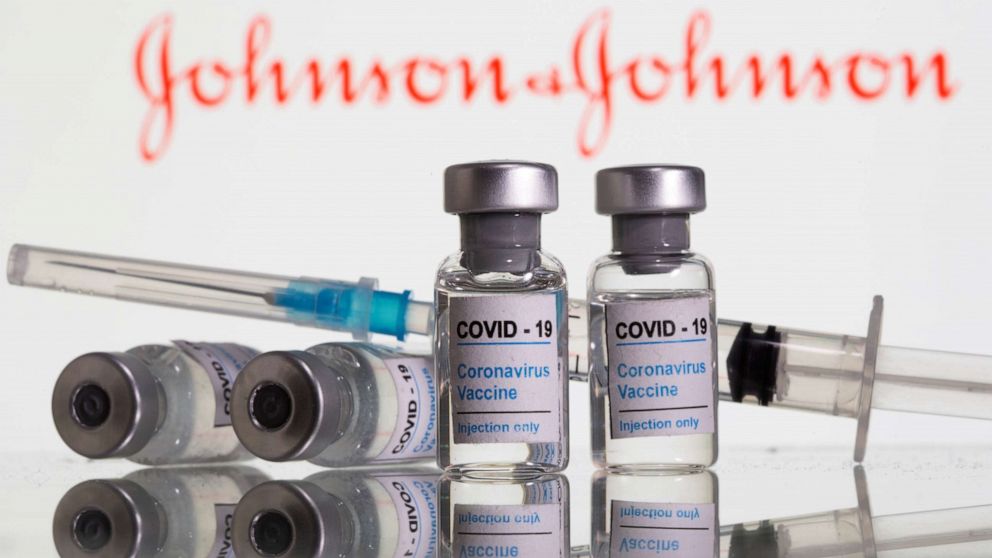Catholic bishops across the U.S. are encouraging people to educate themselves about the COVID-19 vaccines and the link to abortion before being vaccinated.
While many bishops encouraged people to be vaccinated, they discouraged people from getting the Johnson & Johnson vaccine, when possible, because it was developed with cell lines created from aborted babies.
“Were they produced in an ethical manner? It’s a concern for a lot of pro-life folks,” Tyler McClay of the Missouri Catholic Conference told KY 3 News.
Many Catholic bishops have expressed “moral concerns” about the newly-approved Johnson & Johnson vaccine. According to research by the Charlotte Lozier Institute, the company used cell lines created from aborted babies in the design and development, production and confirmatory lab tests to create the vaccine. No cells from aborted babies are in the actual vaccine.
Fetal cell lines are cells taken from an aborted baby and multiplied in a lab “into many cells of the same kind,” the research group explained. “These can be grown indefinitely and further multiplied, creating lines of cells that are sometimes used for science experiments.”
Keep up with the latest pro-life news and information on Twitter. Follow @LifeNewsHQ
In the case of the Johnson & Johnson vaccine, the cell line was created from a baby who was aborted in 1985, the Spokesman-Review reports.
Bishop Walter Hurley of the Diocese of Gaylord, Michigan, admitted that the issue is confusing as well as concerning, Up North Live reports. He and the six other Catholic bishops in Michigan issued a statement last week describing the Johnson & Johnson vaccine as “morally problematic.”
“It’s a bit confusing and we understand that right from the beginning, but the key issue is its connection with abortion and of course the church is so strongly opposed to abortion,” he said.
“What we have to recognize is the distance between the development of the vaccine and the actual production and use of it,” Hurley continued. “There’s a great deal of distance between those realities. And so the farther away you get from those who may have created the vaccines, the less moral responsibility there is.”
The Catholic leaders encouraged pro-lifers to seek out the Moderna or Pfizer vaccines when possible. However, the bishops also emphasized that Catholics can receive the Johnson & Johnson vaccine “in good conscience if no other alternative is available.”
“Pfizer and Moderna were not developed or produced using any aborted fetal tissue or even stem cell from an aborted tissue cell line. They were tested using a cell line called HT2K 93 from an aborted cell line,” McClay said.
Bishop Robert Brennan of Columbus, Ohio, expressed similar cautions in a statement this week, but he also wondered why pharmaceutical companies are relying on cell lines from aborted babies when ethical sources are available, according to the Columbus Dispatch.
“Moreover, given that there are viable alternative cell lines, the decision to do so is puzzling,” Brennan said.
All currently available COVID-19 vaccines have some connection to aborted babies – some more than others. The Charlotte Lozier Institute identified several that are being developed ethically without cell lines derived from aborted babies, but they are not available yet.
Pro-lifers and religious leaders have conflicting opinions about the coronavirus vaccines. Many have recommended that people avoid the AstraZeneca and Johnson & Johnson vaccines, but disagree about the Pfizer and Moderna vaccines.
In the case of the Pfizer and Moderna vaccines, cell lines created from an aborted baby were used in “the animal-phase testing,” but they were not used in the development or production of the vaccines. Because the connection to abortion is small, many say the vaccines are acceptable, especially when no alternative is available. However, others argue that any connection to abortion, even a remote one, makes a vaccine unethical.
Vaccines can be and are produced with ethical materials, including pluripotent stem cells and tissue from placentas, umbilical cords and amniotic fluid. In 2018, the Trump administration created a $20 million grant to invest in these ethical research alternatives.
Last year, the Charlotte Lozier Institute identified 17 research groups that were conducting ethical coronavirus vaccine experiments while five that were not. The five using cell lines created from aborted babies in their research include the University of Oxford (AstraZeneca), Johnson & Johnson and the University of Pittsburgh.








